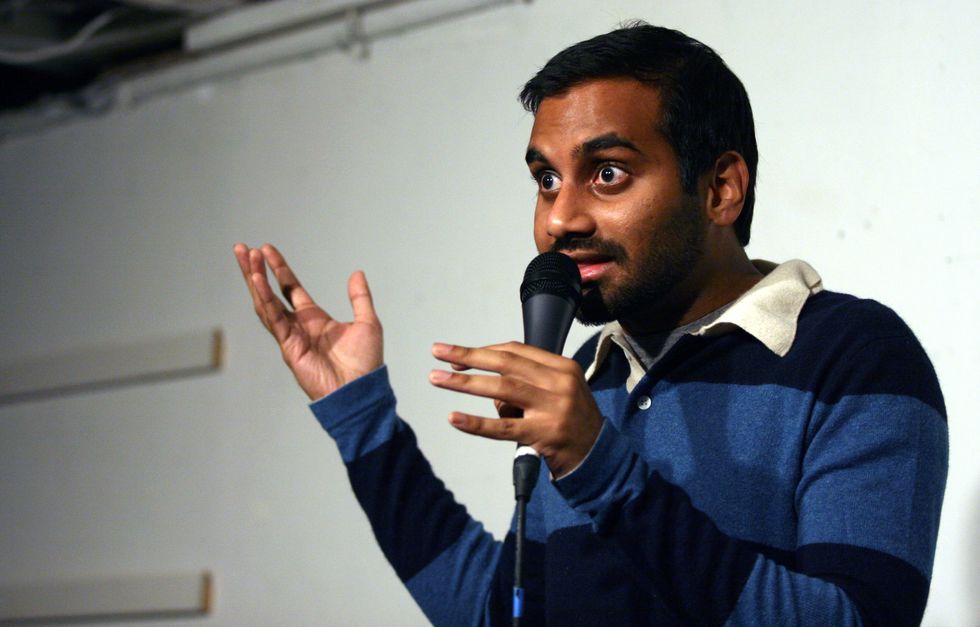As the #MeToo Movement has gained traction, most notably in bigger stratospheres, such as Hollywood, there have been many career casualties.
With the movement’s popularity only growing, it has caused controversy amongst the masses, especially now that accountability is being forced. Some rejoice that an era has finally come where assault is taken seriously, or at least, more seriously than it was. Others have cowered and called the movement a witch hunt. And some have criticized the movement for taking too long to come to fruition.
There are plenty of stances to be had, and especially when more stories start coming forward of a sort of perceived gray area in the movement. Enter: Aziz Ansari. A publication website called “Babe” broke the story of a young photographer, alias “Grace,” and her experience with Aziz Ansari. Grace described persistent behavior on Aziz’s part to pursue sexual activity and his ignorance of numerous social and verbal cues that she did not want to partake. However, Grace ultimately went along with it.
This sparked a different kind of controversy for the movement: a question.
Where does Aziz Ansari fit into this? Most of the other situations and accusations detailed within this movement were a long time coming and too despicable to question.
However, Aziz Ansari’s situation was seen as a chink in the #MeToo Movement’s armor. It was seen as a way to delegitimize it with questions of “But she said yes so what does it matter?” and "He's not a mind reader!!!" And from a similar side, people have criticized Grace's story and cast her out of the movement. The people on this side simply dismissing Aziz as a horny pig, instead of an abuser. Trivializing trauma, and dismissing the real issue.
I have been silent on this particular situation because I had a lot of research to do to understand the situation and contextualize it for myself before I said anything.
There’s a lot to unpack.
But ultimately, I believe this situation should be one that opens up a dialogue about consent, what it means, and what it looks like. Similarly, people should be using this as an opportunity to discuss assault and the wide parameters it encases. Because while Grace went along with what was happening, she also gave clear indicators, both verbal and nonverbal, that she did not want to continue.
Yet, Aziz pushed it.
Grace’s story is criticized because it deflates the picture people have drawn up of what assault is supposed to look like. Grace’s story brings to light a form of assault that is often glossed over: Coercion.
I can recall having a conversation with my roommate my freshman year of college. All the freshman at my school had to take an online course and subsequent test on sexual assault and consent. My roommate was annoyed because she got a question wrong.
I recall, the scenario was that if a person is constantly pestering you to have sex with them and they finally wear you down and you say yes, is that considered rape? Answer: yes.
My roommate answered no and was confused by the test’s logic (“But she said yes! That’s considered verbal consent.”).
The fact of the matter is that if you keep pestering someone to give you something and they finally do, it was not on their own accord and it was not in congruence of free will, especially when that person retains power over you.
Power dynamics are something that need to be taken into account when assessing this situation.
Being that Ansari is a powerful and relatively famous man, and paired with the fact that Grace is a relatively unknown woman, it makes their night together even more complicated.
When put into a position like that with a power dynamic such as theirs, the person with that said power may feel entitled to certain things, and the person with less power may have trouble rejecting advances or truly just outwardly saying no.
Often times, the trouble women have asserting themselves in these situations stem from fear of potential career damage, or the fear of not being believed, among other things. This alarm is only exacerbated by the power Aziz has being a well-known Hollywood elite. Themes all-too familiar with the outpour of recent accusations.
The conversation with my previous roommate, the allegations against Aziz, and the response to those allegations speak volumes. The takeaway from this shouldn’t be that some forms of assault are okay and others are not, and it shouldn’t be that aggressive horny dudes are just something women have to deal with.
The takeaway here should be that all assaults look different and occur in different situations.
People should not be vilifying this woman for not kicking and screaming, but understanding why she could not do either. Or understanding why her situation is considered a very real and common form of assault. Or understanding that assault isn’t always the stranger in the alley.
The allegations against Aziz shed light on a bigger problem in the understanding of sex and the dialogue around it. People took away the wrong things from the allegations against Ansari. Many grasped onto blame and circumstance and read between lines that weren’t there.
So, instead, I challenge you.
Instead of asking questions for the sake of poking holes, ask them for the sake of understanding and doing better. Ask yourself how familiar Aziz’s allegations sound. Ask what constitutes “real” assault vs. what Grace endured, and why there is a perceived difference. Ask yourself why people come forward, and why they don’t; the list is a lot more unbalanced than you’d think. But most of all, ask yourself why trauma is a topic that’s up for debate.
















